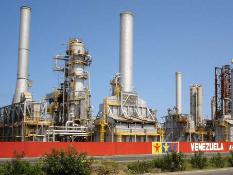By now, after years of skyrocketing fuel prices, the news that the price of a barrel of oil is hitting $100 doesn't exactly cause panic. When you consider that a barrel of crude cost just $11 in 1998, and double that at the beginning of the decade, the truly astonishing development is that our lives have changed so little as a result of the higher prices. And yet, as some oil exporting countries swim in the riches of our gas money, the consequences of $100 oil are not always what you -- and they -- might expect. Soaring prices at the pump could cause Western economies to slow down, and high oil prices will continue to enrich and embolden shady rulers in dangerous countries. But far beyond our SUV-clogged highways, the price of oil could reshape the world in unexpected ways. Many countries, including major oil exporters, spend huge sums subsidizing fuel prices; the higher the price of oil, the higher the cost of these subsidies. At some point, the subsidies become too much and the government has to cut back, potentially sparking unrest. That was the experience of Venezuela in the late 1980s, when thousands of people died in riots that followed a cut in subsidies. In Venezuela today, where the world's cheapest gasoline sells at about 8 cents a gallon, President Hugo Chavez is already laying the groundwork for a possible cut in a subsidy that costs his deficit-riddled treasury about $9 billion a year. Chavez is talking about the evils of gas-guzzling Hummers and the need to keep the revolution from financing the spending habits of the rich. But cheap fuel also keeps transportation for the poor affordable and a price jump at the pump could spell trouble. Iran has been swaggering on the world stage, defiantly pushing ahead with a nuclear program it claims is aimed only at producing electricity. But Iran's real energy problem is gasoline and what the country really needs is oil refineries, not nuclear reactors. Despite its vast oil reserves, Iran imports 40 percent of the gas it uses. To keep the peace at home, the government subsidizes gas prices. By some estimates, it costs 38 percent of the national budget to keep gas prices affordable.
$100 Oil Will Mean Greater Instability in Fuel-Subsidizing Countries

